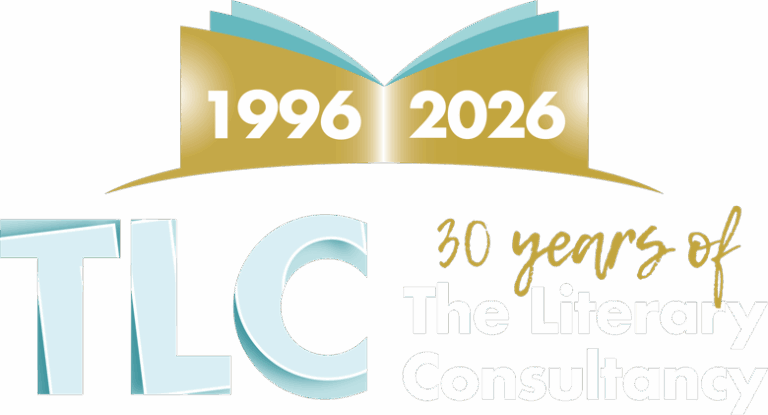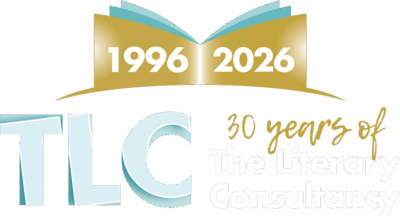Extract from ‘The Author’
The following article was written by Rebecca Swift and Hannah Griffiths, co-founders of The Literary Consultancy. It was published as “Style Gurus” in The Author, the quarterly magazine of the Society of Authors, in Spring 1997. The piece describes the situation for new writers in Britain and explains why and how The Literary Consultancy was set up.
The chances are you will be familiar with being approached by friends or family and asked to read their jottings, autobiography, novel, whatever they have written and about which they want and an opinion – usually good. If you have ever agreed to do this, you will acknowledge the amount of energy required and also the difficulty in formulating an objective response. If it is really poor, both grammatically and structurally, how does one tell the writer? If it has some promise, but needs serious work, have you the time or experience to give detailed help?
Aspiring writers are also usually desperate for details of agents and publishers – any information which might further their dream of being published. When in-house staff are changing, sometimes several times a year, and companies are being bought up and having their images changed, how can one hope to keep up with what might be genuinely useful to somebody? It is well known that a slush-pile languishes pitiably in the corner of every editorial department. Editorial assistants long to discover the next Martin Amis or Joanna Trollope, but they find that the time allowed for reading unsolicited material allows them little opportunity to get beyond chapter one (even page one) let alone to give any real idea of where the writing is not yet there.
A Short Rejection Letter
An editorial assistant at Random House is sympathetic: “I am able to give one day every two months to getting through the pile of unsolicited submissions, so I haven’t got time to find out whether the work is good or not. If it doesn’t grab me within the first few paragraphs, there is no time to persevere. A short rejection letter is all we have time to offer, which I am aware is inadequate, but there is nothing I can do.” The recent discussion concerning falling standards in copy-editing is part of the bigger problem of cost-cutting which has left publishing houses understaffed and pushed for time. Mistakes are an inevitable result. But the problems are not only found in the minutiae of grammatical errors, but also in the structure and quality of the narrative itself. Salman Rushdie and Hilary Mantel are just two examples of successful writers who have complained publicly about this. One writer, who recently had a novel adapted for BBC TV, hugely appreciated the hands-on suggestions of his script editor who suggested a number of changes in the narrative including a total rewrite of the ending. Although not all writers enjoy too much tampering, he believes detailed help such as this would have been useful, had it been available, with his original work.
The desperate bid for sales, the recent trend of moving marketing people into editorial and decision-making positions, has left a dramatic and disturbing hole where real editorial work is needed. It is quite amazing to think that such an integral part of the book industry is increasingly seen as a mere luxury. You would not expect a car to be made without proper safety tests – and neither should a book be produced without sufficient attention to its quality and detail. The text itself has become the least important cog in the wheel as publication days become a circus of hype and gimmicks.
To a certain extent, the responsibility of working thoroughly with the author has fallen back on to the shoulders of agents – which is potentially no bad thing. However, the result is that the very good agents, who can and will spend time, are finding themselves in turn unable to take a proper look at work in which it would be unwise to invest immediately. After all, their livelihood depends on sales. So the newcomer who may yet be a way off publication, let alone the poor should who simply wants a fair comment on his or her work, is less likely than ever to get a look-in.
Help is at Hand
Out of this infernal circle of frustration, a solution is arising in the shape of a number of literary consultants, often with a great deal of experience, offering skills as professional readers to individuals who need attention. They harbour the sole purpose of reading every word, and developing the work of unpublished writers at all stages of their progress. Born out of a pressing awareness that writers are left with no real idea of how to take their work on to the next stage, last May we launched our Literary Consultancy, and have been delighted by the varied and numerous manuscripts we have had the chance to work on, enabling us to continue to do with integrity the thing we love best: work with writers and their words.
There are, of course, also an increasing number of talented editors working freelance. Out of these (and some who still also work in-house), we garnered together a team of first-rate professional readers who enjoy writing and writers alike, and can offer an extremely creative, engaged, honest and detailed report on novels, poetry, short stories and non-fiction in a relatively short time – usually three to six weeks. If agreeable to the author we will annotate the text to make precise meanings clear, tell the writer how the industry is likely to view what they have done, shape a synopsis, help choose the right chapters to send in, comment on past rejection letters, suggest other possible avenues such as magazines and competitions – anything that would really help that person be clearer about what their real position is. Where a work is, in our opinion, nearly ready for publication, we will recommend agents or publishers to pursue, and we have personal links with many.
Advice is only as good as the person who gives it, and we do feel that we have ensured a crew of versatile and imaginative readers who put writing first. Often our clients are delighted to have their work validated by a close read and this is enough. Some have gone on to redraft their typescripts and send them back in a vastly improved state. While we are aware that there are opportunities for these people to attend writing courses and writers’ groups, there is little opportunity there for a one-to-one detailed assessment of work. It is also difficult to receive an objective response from people who have a personal investment in the group, and their own set of fears and expectations.
A literary consultant can afford to be honest – sometimes brutally – but can also be involved while a writer works through the problems. Honesty and a good deal of time for thought and comment are essential, and are easier to give when the professional parameters of a relationship are established. A recent client had been told by Cape’s Tom Maschler in 1989, “You can write”, which has left him clinging to his original novel and his fantasies, yet confused as to his failure at not actually having been published. Unlike Tom Maschler, we have time to tell him how we think his talent is being stifled by the particular novel he can’t let go, and advise on the next course of action.
The Random House editorial assistant formerly quoted is delighted: “At last I can recommend a professional advisory service for the rejectees”. We do hope that in the years to come more writers will invest in valuable consultants, who can break the chain of misery, make expectations more realistic and, where suitable and possible, genuinely help on to the next phase towards publication and the wider world.
Rebecca Swift and Hannah Griffiths, 1997

